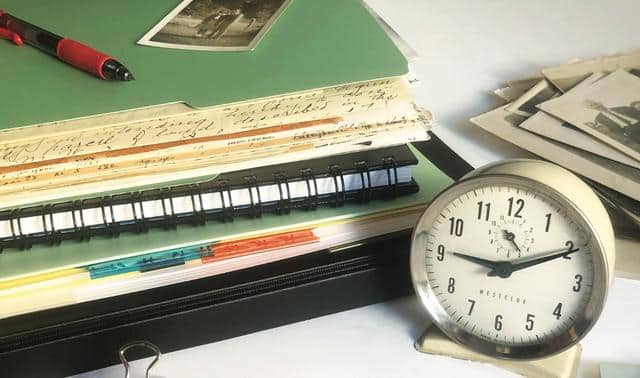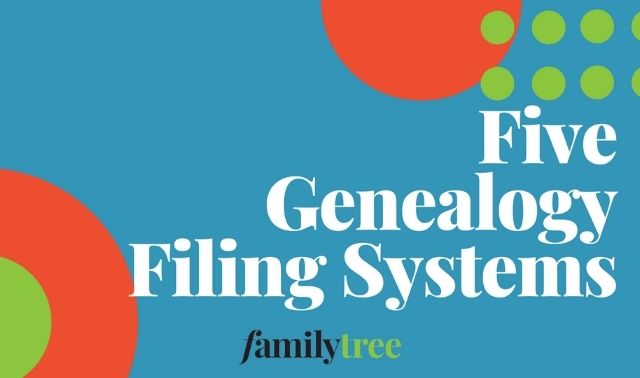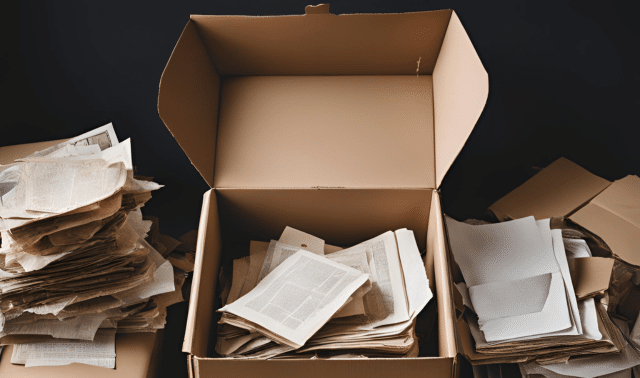Sign up for the Family Tree Newsletter! Plus, you’ll receive our 10 Essential Genealogy Research Forms PDF as a special thank you.
Get Your Free Genealogy Forms
"*" indicates required fields
Does the word “organization” make you sweat? Do you find yourself often looking through stacks of research for a particular record or photo?
It’s an uneasy feeling when you don’t know whether you already have this or that information (and where you’d look to find out), where you got a particular record or “fact,” or how you’d retrieve files after a computer crash (if you’d even be able to). That must be why “get organized” is at the top of so many genealogy to-do lists for the new year.
Following these tips from professional genealogists won’t solve your organization problems overnight, but they can give you a small way to work toward accomplishing organized genealogy.
1. Keep an updated research to-do list.
I follow this advice with a research log in a spreadsheet on Google Drive. I can use my phone or computer to add ideas that come to me while doing other research. When I complete a task, I check it off and enter any findings (and then pat myself on the back).
2. Label and organize paper and digital file folders with a consistent scheme.
If you’re just beginning to climb your family tree, you don’t need to launch right into a detailed filing system. All you need to get going are some file folders and a plastic crate, or if you like using binders, a 2- to 3-inch three-ring binder with subject dividers. It doesn’t matter which you choose; what’s important is that your system is easy to use and — most important — to maintain.
3. Come up with a naming scheme for digitized photos and records, too.
For example, LASTNAME-FIRSTNAME-DAY-MONTH-YEAR-RECORDTYPE. As you develop your file-naming scheme, create a File-naming Cheat Sheet and post it next to your computer to help you maintain consistency.
4. Make time for organization every time you research.
Take a few minutes to file or recycle papers and neaten your desk (or the dining room table) as you wind up a research session. You’ll be able to pick up next time with fewer distractions.
5. Keep a “to file” basket on your desk or a shelf, and schedule regular times to file those papers.
I do this with my family’s non-genealogy paperwork, which helps keep papers off the kitchen counter. Most of my genealogy is digital, so I have a “to file” folder on my hard drive (the problem now being the lack of a paper avalanche to remind me to file stuff).
6. Don’t waste money on unnecessary organizational supplies.
Before you buy anything, figure out what you need to organize. Declutter and decide how you’ll arrange what’s left. For example, would binders or filing drawers work best? What size bookshelf should house your library? Will you need archival boxes to store old photos? You might already have some of the supplies you need.
But no matter how many bins, drawers and shelves you have, it’s your research practices — not the boxes and binders — that’ll keep you organized.
Related Reads
Last updated: November 2024








